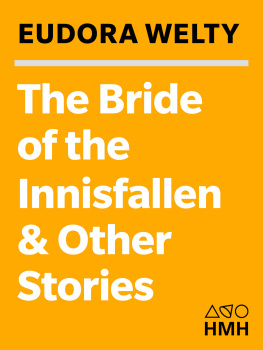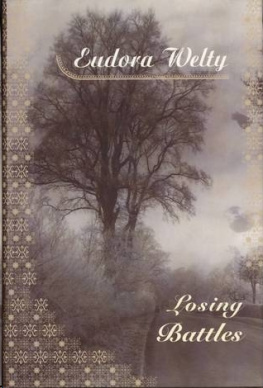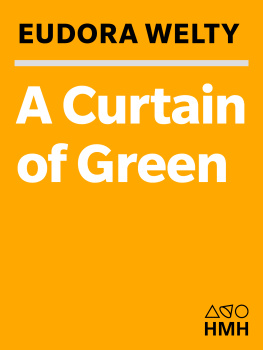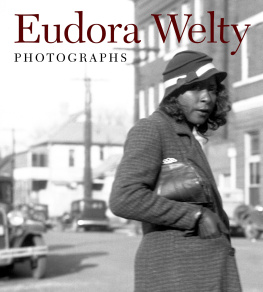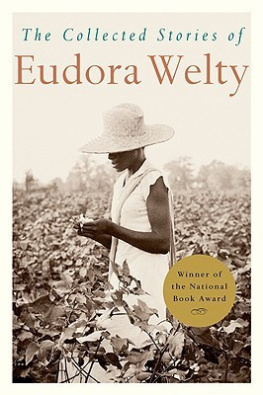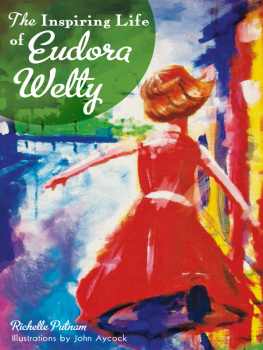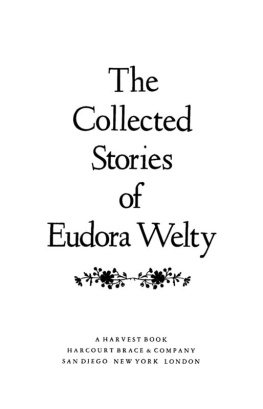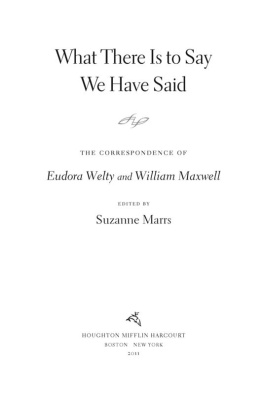Welty - On Writing
Here you can read online Welty - On Writing full text of the book (entire story) in english for free. Download pdf and epub, get meaning, cover and reviews about this ebook. year: 2011, publisher: Random House Publishing Group, genre: Art. Description of the work, (preface) as well as reviews are available. Best literature library LitArk.com created for fans of good reading and offers a wide selection of genres:
Romance novel
Science fiction
Adventure
Detective
Science
History
Home and family
Prose
Art
Politics
Computer
Non-fiction
Religion
Business
Children
Humor
Choose a favorite category and find really read worthwhile books. Enjoy immersion in the world of imagination, feel the emotions of the characters or learn something new for yourself, make an fascinating discovery.

On Writing: summary, description and annotation
We offer to read an annotation, description, summary or preface (depends on what the author of the book "On Writing" wrote himself). If you haven't found the necessary information about the book — write in the comments, we will try to find it.
On Writing — read online for free the complete book (whole text) full work
Below is the text of the book, divided by pages. System saving the place of the last page read, allows you to conveniently read the book "On Writing" online for free, without having to search again every time where you left off. Put a bookmark, and you can go to the page where you finished reading at any time.
Font size:
Interval:
Bookmark:
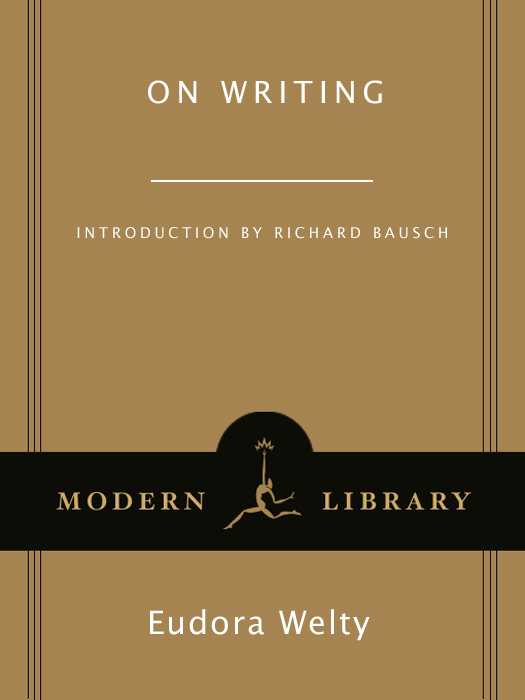
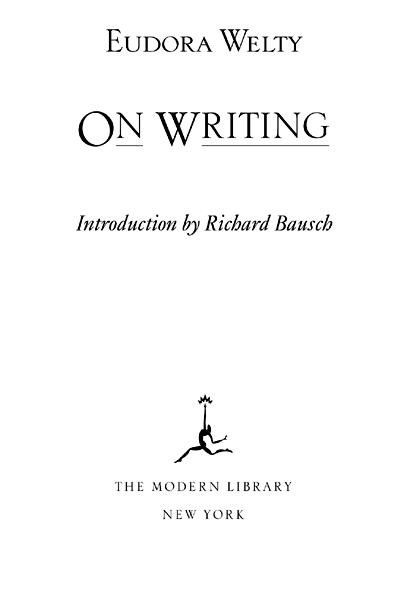
2002 Modern Library Edition
Introduction copyright 2002 by Richard Bausch
Biographical note copyright 1992 by Random House, Inc.
Copyright 1942, 1943, 1944, 1949, 1955, 1956, 1957, 1965, 1966,
1971, 1973, 1974, 1975, 1977, 1978 by Eudora Welty.
Copyright Renewed 1970, 1971, 1972, 1977,
1983 by Eudora Welty.
All rights reserved under International and Pan-American Copyright Conventions. Published in the United States by Modern Library, a division of Random House, Inc., New York, and simultaneously in Canada by Random House of Canada Limited, Toronto.
M ODERN L IBRARY and the T ORCHBEARER Design are registered trademarks of Random House, Inc.
The essays in this work were originally published in the following journals: The Atlantic Monthly, Critical Inquiry, South Atlantic Quarterly, Southern Review, and The Virginia Quarterly Review. They were subsequently published in book form in The Eye of the Story (Random House, Inc., 1978).
LIBRARY OF CONGRESS CATALOGING-IN-PUBLICATION DATA
Welty, Eudora, 1909
On writing / Eudora Welty.
p. cm.
eISBN: 978-0-307-78677-7
1. FictionAuthorship. 2. FictionTechnique. I. Title.
PN3355 .W375 2002
808.3dc21
2002022340
Modern Library website address: www.modernlibrary.com
v3.1
Eudora Welty was born in Jackson, Mississippi, on April 13, 1909. Of her tranquil childhood she wrote: I am a writer who came of a sheltered life. A sheltered life can be a daring life as well. For all serious daring starts from within. She studied at Mississippi State College for Women, the University of Wisconsin, and Columbia University, with the intention of pursuing a career in advertising, an idea abandoned in favor of writing after her stories began to be published regularly in the mid-1930s. The appearance of her work in The New Yorker and The Atlantic Monthly established a reputation that was furthered by the publication of her first story collection, A Curtain of Green, in 1941. After her college days she returned to Jackson, where she would live permanently.
Further stories were collected in The Wide Net (1943), The Golden Apples (1949), The Bride of the Innisfallen (1955), and a book of stories for children, The Shoe Bird (1964). Another collection, Moon Lake, appeared in 1980, as did The Collected Stories. The novella The Robber Bridegroom was published in 1942 and was followed by other longer works of fiction: Delta Wedding (1946), The Ponder Heart (1954), and, after a hiatus of several years, Losing Battles (1970), which focused new attention on her work. Her next book, The Optimists Daughter (1972), won the Pulitzer Prize. A collection of essays, The Eye of the Story (1978), was followed by the memoir One Writers Beginnings, which in 1984 became an unexpected best-seller.
In addition to her work as a writer, Welty published a book of photographs, One Time, One Place (1971), recording her visual impressions of Mississippi in the early thirties. Two of her books, The Ponder Heart and The Robber Bridegroom, have been adapted for the stage.
Eudora Welty died on July 23, 2001, at the age of ninety-two.
One evening not so long ago, I was present at a gathering in the Episcopal Church across from the Folger Shakespeare Library in Washington, D.C. It was late October, and there was a crispness in the air, the trees lining the avenues were all blazing with color. I was then a member of the PEN/Faulkner Board, and though the occasion was decidedly secular rather than religious, it was certainly spiritual: Miss Eudora Welty, then eighty-six years old, was going to read one of her stories.
Earlier, at the dinner which always precedes such events, she had told how a town librarian once approached her, wanting her to come speak. What wed like you to do, the librarian said, is come tell us one of your stories in your own words. Miss Weltys eyes sparkled, relating this story, and there was no dismissal at all in her voice, no sense of the librarian as someone at whose expense the story was told. It was as if this were a tale of the kind of sweet innocence that a child might inspire, and even that isnt adequate as a depiction of the attitude: for Miss Welty was in fact delighted by it. One would almost say gladdened. There was something in her spirit that was always outward-aimed, and glad of human foible, and it is hard to express exactly how it shone forth: one simply knew it when one was in its presence.
At the Fellowship of Southern Writers Luncheon back in 1991, I plopped down next to her and stuck a fork into the chicken cordon-bleu that had been placed before me, and then realized that someone was saying a prayer for the gathering and that the whole audience, including people whom I knew quite well to be pagan, had heads bowed, hands folded. I couldnt get the fork out of the chicken, and so I sat back and put my head down, and waited. When the prayer was finished, Miss Eudora leaned over to me and murmured, I believe its already killed. I still think about the look of mischievous gladness in her eyes and I smile.
And now, years later, she was going to read her story A Wide Net to this large gathering, a packed church, people standing all along the walls and in back, and seated on the floor in the central aisle and across the front of the elevation that led to the altar behind her. There was a small table, with a book and a microphone on it, and one glass of water. She was so frail that she had to be helped across to the chair. She took her place, and the microphone was adjusted at the angle necessary to broadcast her thin, quiet voice, with the lilt of Mississippi in it, and its kindly tremor of humor and grace, and, well, goodness. Nothing less. She got comfortable in the chair, arranged herself, looked out at the throng, smiling, nodded slightly, waiting for the applause to die down. She opened the book, adjusted her glasses, looked at the page and waited a second, then began to read. The silence, as she spoke, and went on, was profound. No one coughed or cleared his throat; no one shifted weight or moved papers or fumbled with a pursefor that might have meant missing a word or phrase. The voice was so small, scarcely more than a murmur. When there were laughsand she knew precisely where they all were, and took pleasure in them without making a show of itshe waited, patiently, until the silence returned, and then continued, in the same soft, warm tones, the voice of an intimate friend, telling you secrets you didnt know you knew.
Here, in the Modern Library, is this wonderful book, filled with all her best virtues as a writer and as a person. Rich with her great wisdom not only about the art she practiced so well all the years, but about life, and the intelligent living of it. Any student of literature would do well to study On Writing, because this book contains the words of a great practitioner of the art of fiction, spelling out the matters of her craft. But there is plenty for anyone interested in how to live, too. Here she is discussing place in fiction:
There may come to be new places in our lives that are second spiritual homescloser to us in some ways, perhaps, than our original homes. But the home tie is the blood tie.
Font size:
Interval:
Bookmark:
Similar books «On Writing»
Look at similar books to On Writing. We have selected literature similar in name and meaning in the hope of providing readers with more options to find new, interesting, not yet read works.
Discussion, reviews of the book On Writing and just readers' own opinions. Leave your comments, write what you think about the work, its meaning or the main characters. Specify what exactly you liked and what you didn't like, and why you think so.

